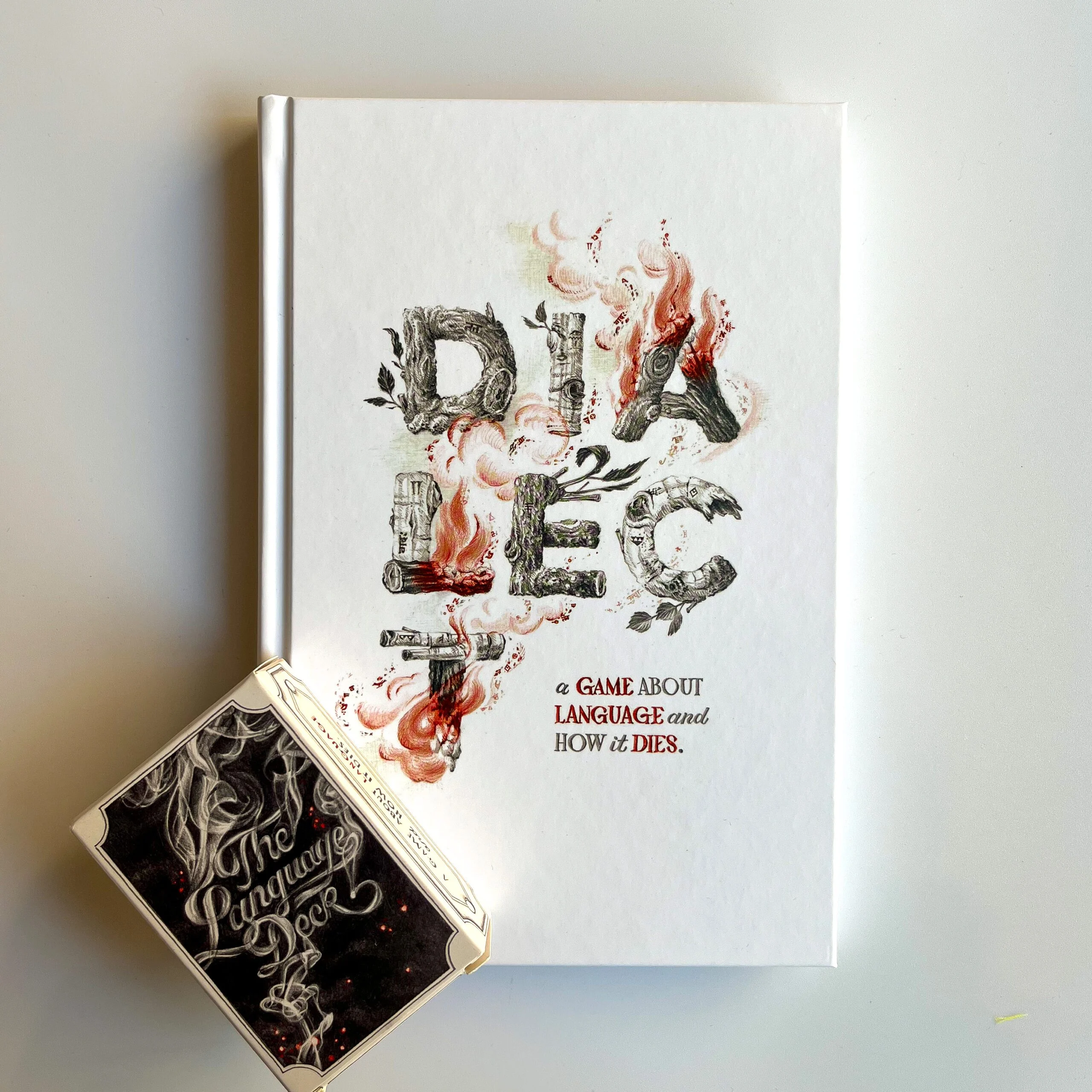Liese Vorhees
Dialect felt like an exciting and accessible starting place for my first TTRPG experience. The manual guides players through distinct and clear phases of world- and character-building that weren’t too intimidating for a first-time player. You choose, initially, between predetermined conditions for your isolation. We selected “Thieves’ Cant,” in which players form a group of criminals who develop their unique code in order to discuss business in front of the general public. Another option could’ve been to be colonizers on Mars. Guided by the manual, we developed a story in which we were a group of assassins, dubbed “Les Fantômes,” who operated amongst the financial and political elites in Paris. Our base of operations was an opera house, where the director let us stay and conduct business in exchange for our protecting her interests in the city. The story was grounded in three “aspects,” which we were directed to invent and write on index cards, and which we placed in a large circle around the center of the table. The first of these were occupation and location, and the third was a free aspect. We selected an idea that we would come to call pierresse after Ben’s character, which described our tendency to leave the slightest trace (e.g. our name whispered in a sleeping ear, or a ghost story pulled off of a bookshelf) at the scenes of our jobs. The idea became a central theme in our conversations, in which we grappled with the balance of efficacy and professionalism against artistry and purpose in the field of assassination. As we began turn-based gameplay, the words that we created were assigned to one of our aspects, making it clear how the concept fit into the world we were crafting. This structure kept us rooted in the story the entire time, returning to the ideas that had inspired us initially. Overall, I found the experience immersive and comprehensible, which was all I could hope for when getting started. The affective dimensions of our isolation – the swashbuckling camaraderie, the high-stakes intrigue – came through strongly due to the collaborative nature of the game and the close focus on our central themes. While we didn’t get to play through them all, all three of us also liked the “eras” structure of the game. We had the space to be creative and change up the story with our conversations, but we never lacked guidance or direction and knew that the game would keep things interesting as we progressed.
The aspect of the game that gave us the most difficulty was the invention of the words themselves. The invention of concepts, and what those meant to our characters, even beyond the scope of their English counterparts, was rich and easy to achieve. The literal creation of the words (the prefixes, suffixes, spelling, pronunciation, and where to start on any of that) was more difficult. I think that if we had had more time to read the linguistic guides in the manual, we would have had less difficulty with this, but it does speak to a more specialized part of the experience that would have been incredible with linguistics majors, but may slow gameplay for most groups.
In general, the game’s biggest strengths were the airtight narrative and immersive storytelling. We loved playing the beginning of what was sure to be an incredible game, and will definitely be returning for more.
